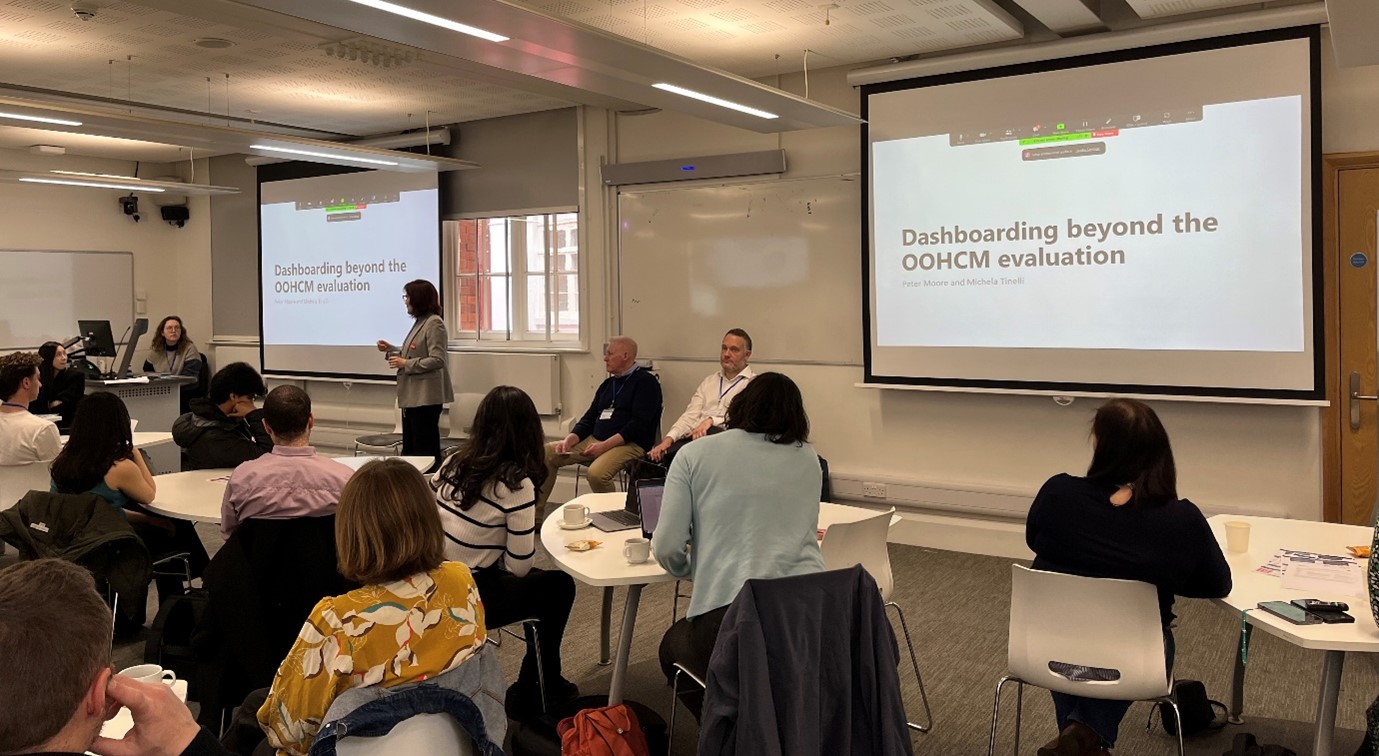The number of people experiencing rough sleeping has been rapidly increasing due to cost of living, housing option shortages and an asylum system under strain. In 2020, the Department of Health and Social Care (DHSC) launched the Out-of-Hospital Care Models (OOHCM) Programme for People Experiencing Homelessness in order to provide more tailored services and support to people experiencing homelessness as they leave hospital.
Evaluating Out-Of-Hospital Care Models (OOHCMs) for people experiencing homelessness
On 30 April 2024, the Evaluation of the Out-of-Hospital Care Models Programme for People Experiencing Homelessness (OOHCM) report was launched on at King’s College London. The report evaluates the OOHCM model launched by DHSC in 2020. The evaluation team supported the DHSC to design and implement audit framework undertook economic and outcomes evaluation and proposed an innovative way to keep the audit and evaluation going longer term. The evaluation found that local systems through the OOHCMs took strides forward in testing, learning, and evaluating new models of care.
This evaluation supports the findings of other studies that have repeatedly demonstrated the considerable benefits of providing specialist out-of-hospital care services for people experiencing homelessness. The audit shows that test site services improved outcomes for most patients and were associated with very positive patient experiences. A stay in step-down significantly reduced the numbers of people discharged to the street. One earlier study suggested that 70% of patients were discharged to the street. In test sites, where specialist step-down intermediate care was in place, the figure was between 4% and 5%. The outcome evaluation has brought fresh evidence on the effectiveness and cost-effectiveness of OOHC for individuals experiencing homelessness, from the NHS and wider public budgets. "Step-down houses" represents a model that satisfies patient preferences, enhances outcomes, improves patient flow, and offers value for money.
At the launch event co-Principal Investigator of the evaluation, Michelle Cornes, (Salford University and Visiting Professor at the NIHR Policy Research Unit in Health and Social Care Workforce at King's based at King’s College London) presented these findings. This included what the success factors and barriers to implementation were. Michela Tinelli, co-Principal Investigator and Assistant Professorial Research Fellow at the Care Policy and Evaluation Centre (CPEC) based at the London School of Economics and Political Science (LSE), also spoke about how she used data to contribute to the evaluation and the LSE plan to continue the audit and evaluation longer term.
Using data and Discrete Choice Experiments (DCE) to address homelessness
In the afternoon of 30 April 2024, Michela Tinelli followed with an informal roundtable to discuss her work on Data Visualisations and next steps to trial LSE dashboarding in homelessness with a partnership led by Oxfordshire Integrated Care Board. Her primary focus is communicating key insights extracted from a range of metrics to steer operational and management strategies. Central to this is decision modelling, where she incorporates data from Discrete Choice Experiments (DCE) surveys. These methodologies aim to capitalise on ongoing CPEC research on homelessness and the application of stated preferences to social care to:
- Apply complex system modelling and various graphic descriptions to analyse and produce visualisation of discrete choice experiment (DCE) data.
- Inform workshop discussions about how best to visualise DCE evidence to inform decision making when commissioning services for people who experience homelessness.

Michela and team presenting on the use of dashboarding beyond the OOHCM evaluation
At the event (chaired by Matt Hindhaugh, Research Innovation Manager at LSE Research and Innovation), Peter Moore, Oxfordshire Health and Housing Project Manager at Oxford City Council said:
"Integrated dashboards can save staff time, and really help flow of support… Having the data available enabled us to show robust evidence to funders. The dashboard enables us to respond in real time in an agile way."
A new video about applying data to homelessness explores the true impact that this work can have.
The development and release of integrated management dashboards led by Michela Tinelli have provided a valuable resource for service providers, commissioners, and policy officials involved in the delivery of out of hospital care for people who are homeless. LSE is looking to collaborate with more local authorities, integrated care boards and non-profit organisations working on homelessness to collect more data, provide dashboarding and test and validate outcomes with the partnership. If you’re interested in developing a user-friendly way to access and utilise data, foster better decision-making and accountability, get in touch with us. You can join the hub and email at cpec.imd@lse.ac.uk to get involved and stay updated. There is more informationin the flyer and on our website.